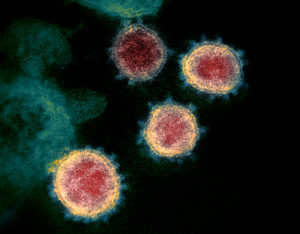 Some good news for those with Rh negative blood (whether it is A, B, AB, or O), and also for those with type O blood. A large Canadian study found that both the O and Rh- blood groups are associated with a slightly lower risk of COVID-19 infection and also severe COVID-19 illness and death. In other words, both are somewhat protective from the new coronavirus, especially O-negative blood.
Some good news for those with Rh negative blood (whether it is A, B, AB, or O), and also for those with type O blood. A large Canadian study found that both the O and Rh- blood groups are associated with a slightly lower risk of COVID-19 infection and also severe COVID-19 illness and death. In other words, both are somewhat protective from the new coronavirus, especially O-negative blood.
Among 225,556 Canadians who were tested for the virus, the risk for a COVID-19 diagnosis was 12% lower and the risk for severe COVID-19 or death was 13% lower in people with blood group O versus those with A, AB, or B, researchers reported in Annals of Internal Medicine.
The researchers point out that some other studies had a similar finding regarding type O blood. Interestingly, the O blood group is associated with a decreased risk for venous thromboembolism (blood clots in the veins) - which can be a big complication of COVID-19.
How many people have O negative blood? One study of 3.1 million American blood donors found that O− was seen in 8.0% of White non-Hispanic donors, 3.9% of Hispanic donors, 3.6% of Black non-Hispanic donors, and 0.7% of Asian donors. So not that common in the US.
From Medscape: More Evidence for Lower Risk With Certain Blood Groups
A large study adds to evidence that people with type O or Rh−negative blood may be at slightly lower risk from the new coronavirus.
Among 225,556 Canadians who were tested for the virus, the risk for a COVID-19 diagnosis was 12% lower and the risk for severe COVID-19 or death was 13% lower in people with blood group O versus those with A, AB, or B, researchers reported in Annals of Internal Medicine.
People in any blood group who were Rh-negative were also somewhat protected, especially if they had O-negative blood.
People with type O blood, and those who are Rh negative, may have developed antibodies that can recognize some aspect of the new coronavirus and therefore might partly protect them against it, coauthor Dr. Joel Ray of St. Michael's Hospital in Toronto told Reuters.
"Our next study will specifically look at such antibodies, and whether they explain the protective effect," Ray said. But whether or how this information might influence COVID-19 prevention or treatment is still unclear.
